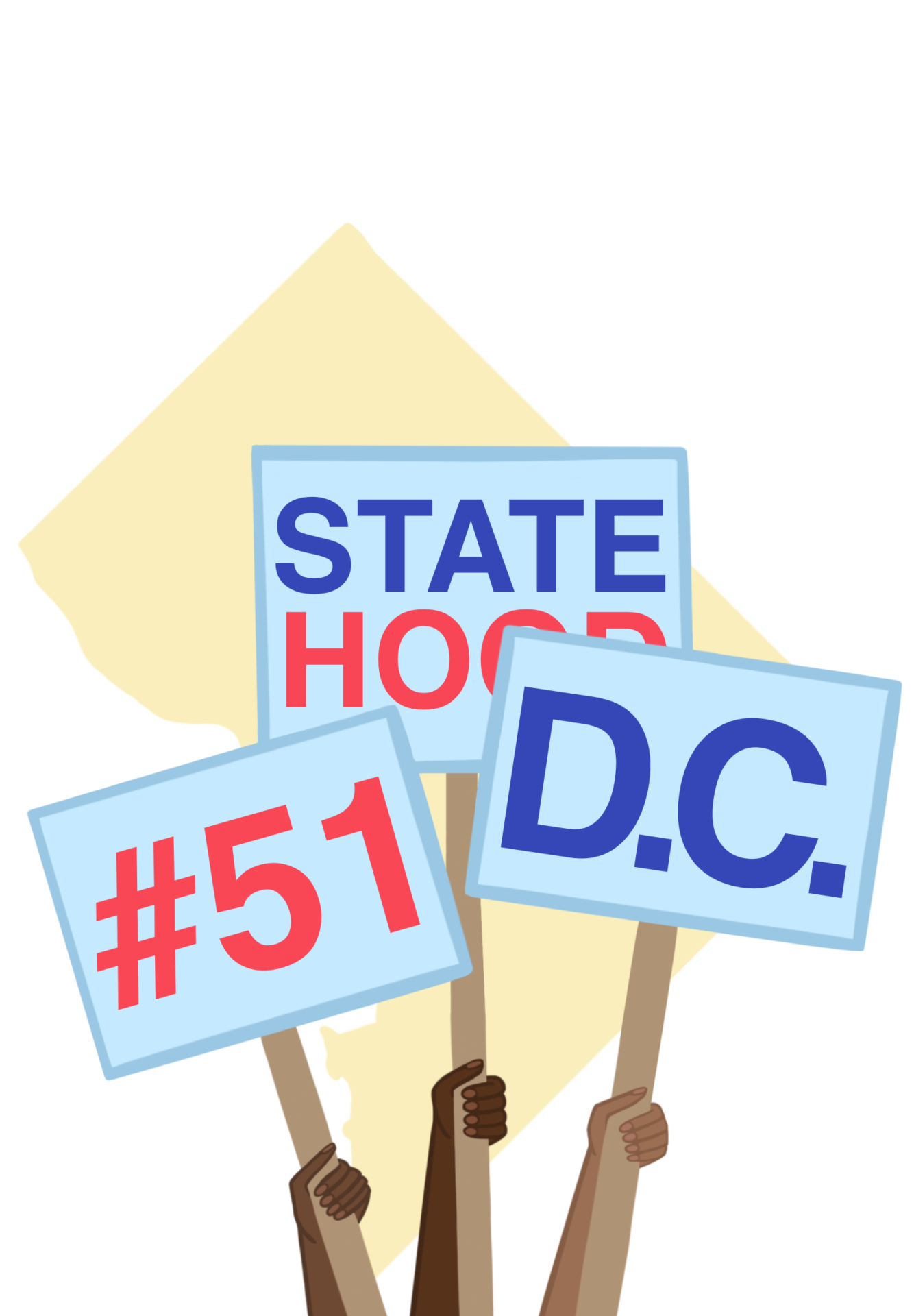
I will never forget sitting in my Washington, D.C. history class during my senior year of high school, listening to my teacher talk about statehood. Our teacher was trying to ingrain in us, a class of D.C. residents, how important it was to understand this issue.
“When you go to college, and you have that D.C. flag on your wall, it’s your job to tell them about what it really means to be from D.C.,” he said. “It’s your responsibility to tell them about the statehood movement.”
Now, I do have a D.C. flag on my wall and I do try to educate others about the movement. And I truly believe that it is a national issue, not one only relevant to a small city on the East Coast. Many Lewis & Clark students pride themselves on being activists, and D.C. statehood is essential to racial activism. If made a state, D.C. would have the highest percentage of Black residents of any state; at 45%, Black Washingtonians are the racial plurality.
Considering this, the fact that D.C. has no voting members in Congress is a blatant act of racialized voter suppression. D.C. would bring two Democratic senators that would solidify a Democratic majority for years to come, and it is no coincidence that it is mostly Republicans who oppose statehood. My D.C. residency aside, as someone who wants to fight against voter suppression, the statehood movement is incredibly important to me.
When I came to college, I was forced to make a choice about my voter registration, since it would now be possible for me to vote in Oregon. This would have allowed me to have a say in congressional elections for the first time in my life. However, I felt that the local D.C. elections were too important to me to change my registration, forcing me to make a choice between congressional representation and the incredibly important local politics. This is not a choice anyone should have to make.
Additionally, pertaining to college, D.C. residents do not get in-state tuition at any college or university besides one D.C. community college. In order to “bridge the gap” between in-state and out-of-state tuition, D.C. offers $10,000 a year towards any public college or university. While this scholarship is great, it does not do much to actually reduce the cost of college. My scholarship to attend LC made it just slightly more expensive than the public colleges I applied to.
I think it is important to put into perspective what D.C.’s lack of statehood means. D.C.’s population is just slightly higher than Portland’s. Imagine if being a Portland resident meant that you could not have representation in Congress; Portland’s mayor could not call the National Guard in case of an emergency; the federal government had to approve its budget; all its residents paid federal taxes but lacked federal representation. The founding fathers were fighting against taxation without representation when they formed the United States. Now, the default license plate in its capital city read “End Taxation Without Representation.” This is what it means to be one of 700,000 D.C. residents. Both Vermont and Wyoming have fewer residents than D.C. does.
D.C. statehood is more important now than it has ever been before; with a Democratic president and Senate, many activists think that it is now or never. D.C.’s statehood bill, H.R. 51, was re-introduced in late January with 227 cosponsors. It would need 10 votes from Republicans to avoid the filibuster, but if the Senate ends in a tie vote, Vice President Kamala Harris could break the tie needed for it to pass. Local organizations, such as DC Vote, have been working on this for a long time in collaboration with D.C.’s non-voting Rep. Eleanor Holmes Norton, and the present moment could be the tipping point.
Statehood promises the freedom and representation that our country claims to be its backbone. D.C.’s statehood could be the catalyst for other non-voting territories, such as Puerto Rico, to receive statehood and decrease the unjust lack of congressional representation. I urge you to contact your elected officials and tell them to support statehood. It is a simple way to make our country better and more equal.
This article presents opinions held by the author, not those of The Pioneer Log and its editorial board.
Subscribe to the Mossy Log Newsletter
Stay up to date with the goings-on at Lewis & Clark! Get the top stories or your favorite section delivered to your inbox whenever we release a new issue.

As a former Pioneer (class of ‘92) and a District of Columbia native and current resident, I can only echo these important sentiments. Thank you, Ms. Kaiser, for bringing this issue to light for your fellow students and other members of the Lewis and Clark community. It’s true that it’s an issue that should be important to a wide swath of the United States, not just to residents of our fair city. As you so clearly put it, all activists should have DC Statehood at the top of their lists of things to work toward.